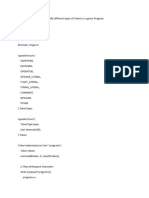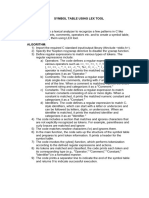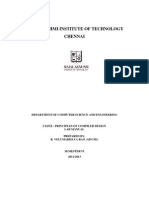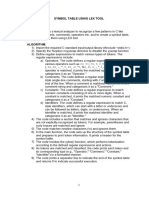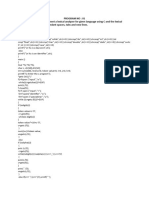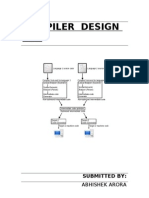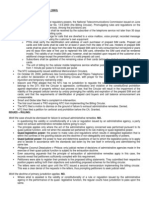0% found this document useful (0 votes)
39 views27 pagesCD Lab Manual File
The document is a lab manual for the Department of Computer Science and Engineering at IIMT Engineering College for the session 2024-2025. It includes various practical exercises related to compiler design, such as implementing lexical analyzers, generating YACC specifications, and converting NFAs to DFAs. Each practical includes code examples and descriptions of the tasks to be completed.
Uploaded by
rajan adhanaCopyright
© © All Rights Reserved
We take content rights seriously. If you suspect this is your content, claim it here.
Available Formats
Download as DOC, PDF, TXT or read online on Scribd
0% found this document useful (0 votes)
39 views27 pagesCD Lab Manual File
The document is a lab manual for the Department of Computer Science and Engineering at IIMT Engineering College for the session 2024-2025. It includes various practical exercises related to compiler design, such as implementing lexical analyzers, generating YACC specifications, and converting NFAs to DFAs. Each practical includes code examples and descriptions of the tasks to be completed.
Uploaded by
rajan adhanaCopyright
© © All Rights Reserved
We take content rights seriously. If you suspect this is your content, claim it here.
Available Formats
Download as DOC, PDF, TXT or read online on Scribd
/ 27


